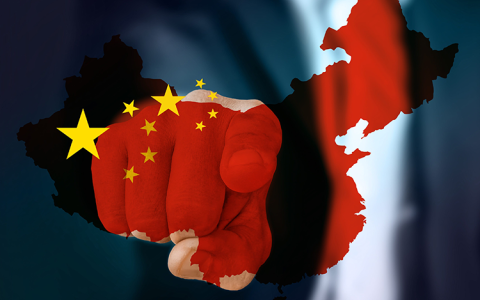
President Trump says no trade deal with China will move forward unless the U.S. trade deficit is resolved. Speaking aboard Air Force One on Sunday night, Trump emphasized his priority: “Unless we solve that problem, I’m not going to make a deal.” He also mentioned speaking with European and Asian leaders eager to negotiate.
Markets reacted swiftly. U.S. stock futures dropped sharply Sunday evening, continuing last week’s volatility. On Thursday and Friday, equity markets shed $6 trillion in value following Trump’s announcement of sweeping tariffs.
Treasury Secretary Scott Bessent downplayed recession fears on NBC’s Meet the Press. “This is an adjustment process,” Bessent said. “We’re gonna hold the course.” He also noted that over 50 countries have approached the administration to discuss lowering tariffs. “He has created maximum leverage for himself,” Bessent said, referring to Trump. Whether the U.S. enters negotiations, however, will depend on “what the countries offer and whether it’s believable.”
The administration remains firm. National Economic Council Director Kevin Hassett said on ABC’s This Week that the tariff impact on U.S. consumers will be minimal. He also confirmed that numerous countries are coming to the table.
Commerce Secretary Howard Lutnick made it clear on Face the Nation that the tariffs will not be lifted soon: “There’s no postponing. They are definitely going to stay in place for days and weeks.” Agriculture Secretary Brooke Rollins echoed this stance on CNN’s State of the Union, describing international outreach as intense. “Countries are burning the phone lines trying to reach the administration,” she said.
Still, concern is growing in financial circles. Hedge fund manager Bill Ackman called on Trump to pause and reassess. “The president is losing the confidence of business leaders around the globe,” Ackman wrote on social media, warning of a “self-induced, economic nuclear winter” if no compromise is reached. He urged Trump to use Monday as an opportunity to open the door to negotiation.
The administration remains split between negotiation and resolve. Trump, in a social media video last week, appeared to suggest the market drop was strategic. On Sunday, Hassett denied this interpretation. “It is not a strategy for the markets to crash. It’s a strategy to create a golden age in America for the American worker,” he said.
Senator James Lankford (R-OK) voiced hope that the current volatility is temporary. “I think once the president starts announcing some negotiations in some different countries, we’ll start to see the market calm,” he told NBC.
For wealth advisors and RIAs, these developments highlight continued geopolitical uncertainty that will ripple through equities, global trade exposure, and rate expectations. Risk management strategies may need revisiting as volatility persists. Attention to international trade policy—and how client portfolios are positioned relative to U.S. policy shifts—remains critical.



